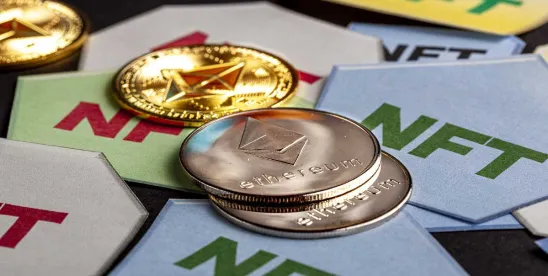Following the approval and launch of Bitcoin Exchange Traded Funds (EFTs) in January 2024, the U.S. Securities and Exchange Commission (SEC) approved eight Ethereum ETFs for listing and trading on SEC-regulated exchanges on May 23, 2024. The approval represents a significant milestone that paves the way for increased institutional and retail investments in crypto ETFs and addresses critical regulatory issues that have surrounded Ethereum for years. The approval of these Ethereum ETFs is especially noteworthy in light of recent comments by SEC Chairman Gary Gensler who suggested that Ethereum, due to its staking mechanics, might be classified as a security under SEC regulations.
The approval of these applications occurred without much resistance, which is a notable departure from the contentious process that preceded the approval of Bitcoin (BTC) ETFs. As outlined in our prior article, the SEC only approved BTC ETFs after three federal judges ordered the SEC to grant approval following Grayscale Investments’ victory in court. In Grayscale Investments v. SEC, the D.C. Circuit found the SEC was “arbitrary and capricious” in rejecting Grayscale’s application to list a BTC ETF.
In contrast, this time the SEC approved the Ethereum ETF applications of its own volition. While this maneuver might have been to avoid more litigation and public scrutiny, the approval shows a steady departure from “regulation by enforcement” and a movement toward actions that promote growth in the cryptocurrency industry and investor freedom.
This piece begins by explaining what the SEC has approved and why. Next, our team comments on what to expect in the future and what this all means for the cryptocurrency industry and investors going forward.
The Approval Order
The SEC approved the listing and trading of eight Ethereum (ETH) ETFs: the Grayscale Ethereum Trust, the Bitwise Ethereum ETF, the iShares Ethereum Trust, the VanEck Ethereum Trust, the ARK 21Shares Ethereum ETF[1], the Invesco Galaxy Ethereum ETF, the Fidelity Ethereum Fund, and the Franklin Ethereum ETF. All the ETH ETF sponsors are familiar names from the first round of BTC ETFs.
The most important development from the approval order was the SEC heavily implying that ETH is a commodity and not a security. The SEC approved the applications under the rules for commodity-based trust shares. None of the sponsors filed applications under the Investment Company Act of 1940, which is required for ETFs that trade securities. Additionally, the SEC only cited court precedents that involved commodities and not securities to support approving the applications.
The SEC further justified its approval in ways reminiscent of how it explained approval of the BTC ETFs. Notably, the commission cited the high correlation between spot ETH prices and the Chicago Mercantile Exchange (CME) ETH futures market. This is significant because CME surveillance of spot ETH markets would help detect any market manipulation that could affect the integrity of ETH ETFs.
The SEC’s approval of the Ethereum ETFs comes with specific conditions, including a prohibition on staking ETH via ETH ETFs. If the sponsors of these ETFs want approval to stake ETH, they will need to submit a proposed rule change and wait for SEC approval.
What’s Next?
Although the SEC, in late May, approved the sponsors’ applications to list ETH ETFs on public exchanges, we likely will not see the ETFs listed for trading on those exchanges until mid-to-late July, at the earliest. Each sponsor must submit an S-1 filing as a registration statement and wait for SEC approval before the ETFs can actually be listed for trading. Recently, the SEC returned the submitted S-1 forms with slight comments, asking sponsors to resubmit by July 8, 2024, which delayed the expected launch. Bloomberg ETF analyst Eric Balchunas had previously stated that an end of June launch for the ETH ETFs was a “legit possibility,” but recently revised his prediction, suggesting an expected launch date of mid-to-late July, pending the SEC’s review and final approval of the resubmitted S-1 forms.
Similar to our prediction for the BTC ETFs, we again expect a heated battle for market dominance. Generally, the first movers in the ETF industry box out competitors by gaining significant market share early on. Other factors, such as brand recognition, price competition, commitment to the crypto industry, and developments in disruptive technology may also prove important. But at the moment, it is unclear what factors will affect the ETH ETF market or to what degree each factor will affect the market. Price and market power will likely be important to investment banks, but analyst prowess may be relatively unimportant considering that the ETH ETFs are single-asset funds.
While the SEC’s approval of ETH ETFs represents a clear and positive step in the classification of ETH as a commodity, the SEC remains free to argue that ETH staking is an investment contract (a.k.a., a security) subject to its jurisdiction. That said, the SEC cannot rationally assert that ETH alone is not a security in the case of ETH ETFs but that it is a security in other cases. If sponsors want to stake the ETH in the ETFs, the SEC may put up much more a fight than they did in approving the ETF applications in the first place. Notably, the Financial Innovation Technology for the 21st Century Act (FIT21) aims to classify ETH and many other crypto assets as commodities. The House of Representatives passed FIT21 on May 22, 2024, but the bill’s prospects in the Senate are uncertain. It remains to be seen if FIT21 will be the first piece of federal cryptocurrency asset legislation.
The Approval Order only covers ETH ETFs, not any other single-crypto-asset fund or any multi-asset-crypto-fund. However, the fact that the SEC has now approved two cryptocurrency ETFs shows a shift in the political and regulatory landscape regarding cryptocurrency assets. Even if the SEC treats the “vast-majority” of cryptocurrency assets as securities, the focus will undoubtedly shift to which cryptocurrency asset will be the next to gain ETF approval.
Our Perspective
Overall, this is a positive step forward by the SEC and for the cryptocurrency asset industry, which is piercing mainstream financial markets in aggressive fashion, pushing innovative investment and technology opportunities to the forefront.
The Approval Order demonstrates that crypto assets can start life as a security and transition to a commodity (or other non-security) over time. Thus, Ethereum’s founders, and the founders of many other cryptocurrency assets, can rest easier knowing that their assets either are or can become so decentralized that the SEC cannot classify them as securities.
Even following the Approval Order, we still expect SEC Chairman Gary Gensler to reiterate his position that most cryptocurrency assets are still securities in the eyes of the SEC. Chairman Gensler affirmed this belief in the wake of approving BTC ETFs, and again in the days leading up to the ETH ETF Approval Order. But we are optimistic that the SEC’s decision to approve two cryptocurrency ETFs demonstrates the SEC staff’s commitment to a “merit-neutral” perspective.
The Approval Order will stimulate growth in the fledgling United States cryptocurrency retail market. When the ETFs are listed on public exchanges, U.S. investors will be able to buy, sell, and hold ETH in their IRAs, 401Ks, and brokerage accounts. In the coming years, it is very possible we will view the SEC’s decision to approve ETH ETFs as an important step in what became a trend of integrating cryptocurrency assets into traditional finance networks through ETFs and other financial instruments.
While the SEC’s action is certainly a good step forward for investor freedom, the SEC is still preventing investors from unlocking the full potential of their investment. The decision to prohibit sponsors from staking ETH in the ETFs likely deprives investors of an average additional 2.61% return on ETH staked for one year. The staking issue will pose many crucial questions going forward: How will sponsors and investors craft staking agreements for each ETF? What will the SEC do when a sponsor submits a proposed rule change to allow staking? Can the SEC resolve this issue amicably by cooperating with the industry, or will the courts have to decide?
We believe that the SEC cannot credibly assert that ETH alone is a security in some cases but not in other cases, so the freedom to stake ETH in the ETFs should not be as big of an issue the SEC is setting it up to be. Still, the SEC may need to hear that from a judge before it concedes.
In conclusion, we would be remiss to not remind readers that good governance by cryptocurrency-savvy, ETF-savvy officers and directors, and expert SEC legal advice by counsel, will all be necessary for sustainable market success in this industry. The digital assets industry is still a young, volatile, and highly creative technology sector that is fraught with perils identified as legal and regulatory “risk factors” in several prospectuses.
ETFs are complex. Cryptocurrency assets are beyond complex. Sponsors and banks should not seek SEC approval for a cryptocurrency asset ETF, nor should a bank, broker, or RIA contract with a cryptocurrency asset ETF sponsor or authorized participant, unless led and advised by seasoned counsel.
Special thanks to Ryan Chatoo, a summer associate in Foley’s Miami office, for his contributions to this article.
[1] On May 31 ARK Invest ended its partnership with 21Shares and is no longer involved with the ETF. The SEC has approved 21Shares to continue under the rebranded name of 21Shares Core Ethereum ETF.








 />i
/>i
